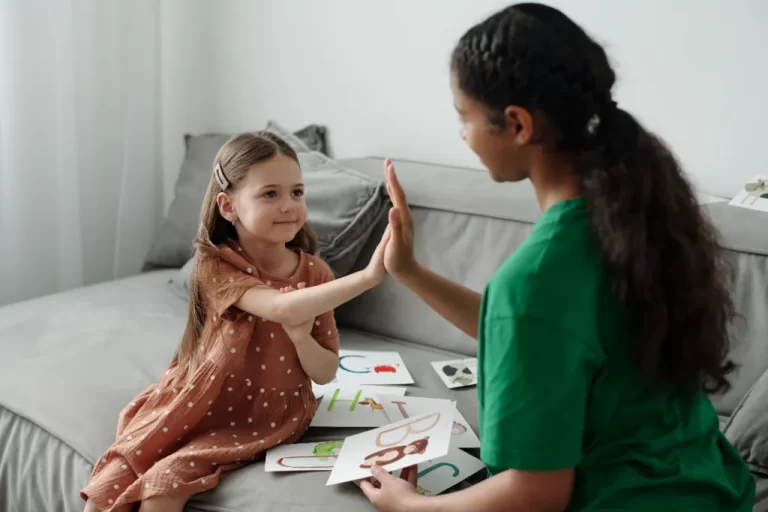What Is Person-Centred Care?
Person-centred care promotes dignity, respect and compassion by putting people’s needs at the core of health and social care. It focuses on working in partnership between the person, their family and caregivers to provide the best health and wellbeing outcomes for the individual.
Person-centred care sits at the top of the 13 fundamental standards for health and social care services required by the Care Quality Commission (CQC).
Personalised care empowers people to manage their own health by including them in every action, decision and treatment plan.
At Unique Community Services, our person-centred framework unlocks all the resources to ensure that people’s values, needs and requirements are included in their healthcare plans. We place every person at the centre of everything we do, empowering people to be the leading figures in the decision-making processes about their health and wellbeing.
Person-Centred Care vs Patient-Centred Care
Besides semantics, person-centred and patient-centred care have many similarities on the surface. Studies suggest that these two concepts share the fundamental values of providing care and support to people in need, including:
- empathy and compassion
- dignity and respect
- active engagement
- building bonds
- confidence and communication
- co-produced decision-making
- holistic approach
- individualised focus
- coordinated care and support
However, these two concepts are notably different in many aspects, primarily in their goals and outcomes.
Implementing patient-centred care was a paramount step in health and social care history. This transforming agenda appeared as a response to the old and limitations-based medical model of care.
The patient-centred care is focused on the individual patient and his unique needs and preferences. However, the primary goal of patient-centred care is to achieve optimal functionality of the person, addressing the potential barriers imposed by the underlying health challenge.
Person-centred care was developed to broaden and extend health and social care horizons by embracing all aspects of the person’s life and their equal human rights. Person-focused care is centred towards the person and their health and wellbeing outcomes.
The primary goal of person-centred care is to support people towards their journey of independence and meaningful life.

Person-Centred Approach in Health and Social Care
A person-centred approach is parting ways with medical experts and caregivers entailing what’s best for the person who needs additional support, putting people at the centre of their care planning instead.
The personalised approach in health and social care actively includes the person and their family in designing their care and support, empowering the person to manage their own health.
The fundamental aspects of person-centred care include:
- Putting people and their values at the centre of caregiving
- Providing emotional support and wellbeing to the person and their family
- Relying on a person’s individual needs and preferences
- Providing physical and emotional safety
- Implementing activity program for active engagement of the person with their family and friends
- Valuing individual human rights
- Ensuring the person has access to the necessary care at the right time and the right place
- Building confidence and strong relationships with the person, providing people with all the information they need
At Unique Community Services, everything we do revolves around the people we support and their unique needs and desires.
Why Is Person-centred Care so Important?
Person-centred care introduces an entirely different aspect of health and social care. With the personalised approach, people are finally seen for who they are, not only through the scope of their condition or health challenge.
Person-centred approach and humanised care reflect the need to treat people with dignity, respect and acceptance, regardless of their differences or barriers.
Person-focused care highlights the importance of respecting the human rights of every individual with complex needs. The humanised concept empowers people to seek dignity and equal respect from society.
Person-Centred Care in Practice
At Unique Community Services, we ensure that person-centred practices are embedded in every action across the entire organisation.
In our proactive health and care services, we keep the people we serve involved and central to their care, with absolute freedom to make choices and decisions about their own care plans and their own health.
Below are examples of our best practice for person-centred care:
- Honest and intentional interactions with the people we support to learn their unique needs, supporting people to acknowledge and develop their own strengths and skills to live an independent and meaningful life
- Implement different communication strategies to empower people to make important decisions about their own health and wellbeing outcomes
- Unlock all the resources and inspect all the potential risks, consequences or advantages available for living the best quality of life possible at home and in the community
- Regularly cooperate with the person’s family, caregivers and healthcare providers and ensure that team communication is well-organised, coordinated and ongoing
Further examples of our person-centred care include:
- Implement compassion, dignity and respect in everything we do, in every encounter with the people we support, their families, co-workers and other caregivers
- Provide an activity program and ensure that the person we support engages in group or community activities whenever it is possible or brings the community into their homes
- Ensure that we are highly responsive to people’s preferences and needs and that we listen to people and what really matters to them
- Guide high-quality health and care services and keep people safe at home and in the community
Training Clinicians to Apply Person-Centred Approach
At Unique Community Services, our clinicians are extensively trained in applying the person-centred approach to every individual in need. Our UCS course embraces the four basic principles of person-centred care and how we train our clinicians to practice the best possible personalised care.
During the course, our employees will learn the following:
- What is person-centred care?
- The values and impact of person-centred care
- Rules and regulations related to implementing person-centred care for people with additional needs
- Methods and techniques for providing high-quality person-centred care
- Making meaningful choices that are in the best interest of the person we support
- Person-centred care fundamentals/basics
- Intense training and exercises to gain the best experience and knowledge


Principles of Person-Centred Care
Person-centred care creates a partnership between the care providers, the person receiving care, their family and carers. These relationships are founded on dignity and respect.
The core principles of person-centred care are:
- Access to physical and environmental needs – creating safe and comfortable environments and treating people with dignity and respect. Health caregivers need to take care of a person’s medication administration, personal care, and daily activities
- Emotional support, compassion and empathy – person-centred care entails humanised and holistic approach. In our caregiving practices, we always show empathy and respect to the people we serve. We recognise people’s individual needs and tend to build strong bonds with the person and their family
- Consistent and coordinated care – providing care and support is a delicate process that requires consistency and a productive approach. Every change or transition needs to be as smooth as possible
- Independence and social inclusion – besides providing all-encompassing care, a person-centred approach is also based on fostering independence and active engagement of the person in the community
Benefits of Person-Centred Care
Person-centred care has a wealth of benefits and advantages for people with complex care needs. While the benefits of person-centred care are enormous, we have listed a small number of the benefits below, including:
- Value – people will feel more valued and motivated when having their needs and desires implemented in their healthcare plan
- Inspiration – when people feel appreciated, they gain inspiration for achieving their goals and significant milestones
- Humanised care – person-centred care entails emotional, personal and social support alongside the medical care
- Independence – individuals gain more independence and motivation to do things on their own
- Safety – people feel safe and fulfilled in the nurturing environment, which results in better wellbeing outcomes and motivation for both the service users
- Quality of life – person-centred care leads to a better quality of life and can speed up the recovery process
The Potential for People-Centred Care to Transform Healthcare
The person-centred approach improves the overall experience and outcomes for people with additional and complex care needs, helping redraw the healthcare sector’s aims and objectives.
A personalised approach is a massive step in transforming healthcare for the better. The people-focused concept can result in reduced mortality and shortened length of stay in a hospital.
Person-centred care gives back the trust in the healthcare system, provides better health and wellbeing outcomes, and results in mutual satisfaction of the care professionals and people receiving care.
Unique Community Services Proudly Practice Person-centred Care Approach
At Unique Community Services, our clinicians are trusted experts in delivering person-centred care and support to people with complex needs.
We respect the choices and desires of the people we serve, empowering them to actively participate in making decisions about their healthcare and wellbeing.
We train our clinicians in person-centred practices, Positive Behaviour Support (PBS), and Prevention and Management of Violence and Aggression to ensure we provide the highest quality of care.
We are proud to be recognised as the Great Place To Work® and Best Workplace for Wellbeing.
Our offices are based in Bristol and Manchester. Contact us to learn more about our unique 24/7 care at home for you or your loved one.













